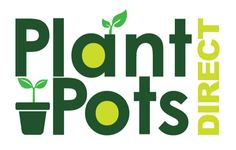Making a plan is a good plan

Another area you should consider is what vegetables did I actually use throughout the growing season, there is little point is spending hours nurturing a plant, allowing it produce the best crop on the allotment only to end up in the compost bin because nobody wanted to eat it, surly that’s just a waste of your time. I’d prefer to plant my use of space based on what I (or my family) actually consume week after week, what items do we buy from the supermarket every time we go and where can the allotment help in reducing this spend.
Once you are at the stage to knowing what you would like to grow assess the seeds that you have left over from last year. Some gardeners insist on new seeds for every season, I haven’t had a problem with germination of seeds from the previous years, as long as the seeds have been kept in a dry place and they are still within the ‘sow by’ date they are good enough for me.
Now we know what we want from the allotment and we know what seeds we have and what seeds we need to buy, it’s time to spend a little bit of time putting a little plan together of how the year is going to pan out. From experience, there are two types of gardeners, the ones that have a plan and the ones that don’t, again from experience the plan is the better way to go by as everything gets remembered and the success is usually greater.
So, what does the plan include? A good question, I always start with planning what needs to go where on the allotment, remembering that I need to move all my growing areas to ensure that I don’t have to same type of crops growing in the same place as last year. Rotating the crops will allow the soil to recover and prevent against disease, such as club root and white spot, increasing that chances of a good harvest. I always draw a plan, laminate it and pin it up in the shed, even if I don’t look at it again all year, it’s going to be there when I come to planning before the next season, the chances are I will have forgotten what was planted where.
Next item in the plan is the list when the seeds need to be planted and where. Every vegetable gardener knows that 90% of the plants need to be in the ground by May (or when it’s safe that we won’t get a frost). To achieve this deadline most of the seeds need to be planted and growing a good two months before they get anywhere near the ground. So, unless you are planning on buying plug plants from the local garden centre, you really need to be planting seeds on a regular basis from late February / early March. If you look at the back of every seed packet there will be a recommended guide to when the seeds should be sown. By making a list of this information for each vegetable you are wanting to grow you are basically producing a task list for the next two months, which is what you need. It’s also worth making a note of when they recommend when to transplant the plant to the ground and if the plant is hardy to colder conditions, some plants will survive a mild frost, which will help with space in the greenhouse.
Check List - Before you start growing
1. Make a plan of you growing space.
2. Rotate your crops from the previous year.
3. Assess what you would like to grow.
4. Review what seeds you need to buy.
5. Prioritise your seed sowing.
6. Stick to your plan.


Leave a comment